Wainwright Calendars and Diaries
Article by Chris Butterfield
The Wainwright calendars and diaries, once popular among Alfred Wainwright enthusiasts, have been out of print for several years. Frances Lincoln took over from Michael Joseph as the publisher of Wainwright’s books in February 2003. Under Frances Lincoln’s stewardship, the Wainwright diaries were produced annually for 15 years, from 2005 to 2019. However, after 2019, these diaries were discontinued. The following article delves into the history of the Wainwright calendars and diaries, focusing on their origins with the Westmorland Gazette.
<<>>
Andrew Nichol assumed leadership of the book publishing department at the Gazette in June 1982, succeeding Harry Firth, who retired early. Confronted with the challenge of reversing the department’s two consecutive years of losses, Nichol’s tenure was critical. A third year of losses would have resulted in the department’s closure.
The Gazette’s acquisition of the copyright from Wainwright and Andrew’s success in persuading Wainwright to participate in publicity was pivotal in revitalising the department’s profitability. Andrew was also the creative force behind the variety of merchandise produced during the 1980s, including calendars and diaries, all of which were initiated with Wainwright’s approval. Despite Wainwright’s scepticism about their public appeal, these items significantly contributed to the department’s success.
The first Wainwright calendar, featuring his unique pen and ink illustrations, was produced swiftly to be available in time for 1983. They were then released annually until at least 1989, and some were customised to promote local businesses in Kendal. The exact number of editions and variations remains unclear.
Michael Joseph also produced several Wainwright calendars from 1988 to the 1990s. However, the Gazette refused them permission to use Wainwright drawings, so they featured Derry Brabbs’ landscape photography instead.

The Wainwright calendars were produced in a variety of designs. They were initially produced as portrait calendars and changed to landscape in 1986. Adding to their uniqueness, some editions were custom-made to include company logos and contained discount vouchers tailored to promote local businesses in and around Cumbria. This approach provided a marketing boost for these businesses and the Westmorland Gazette.
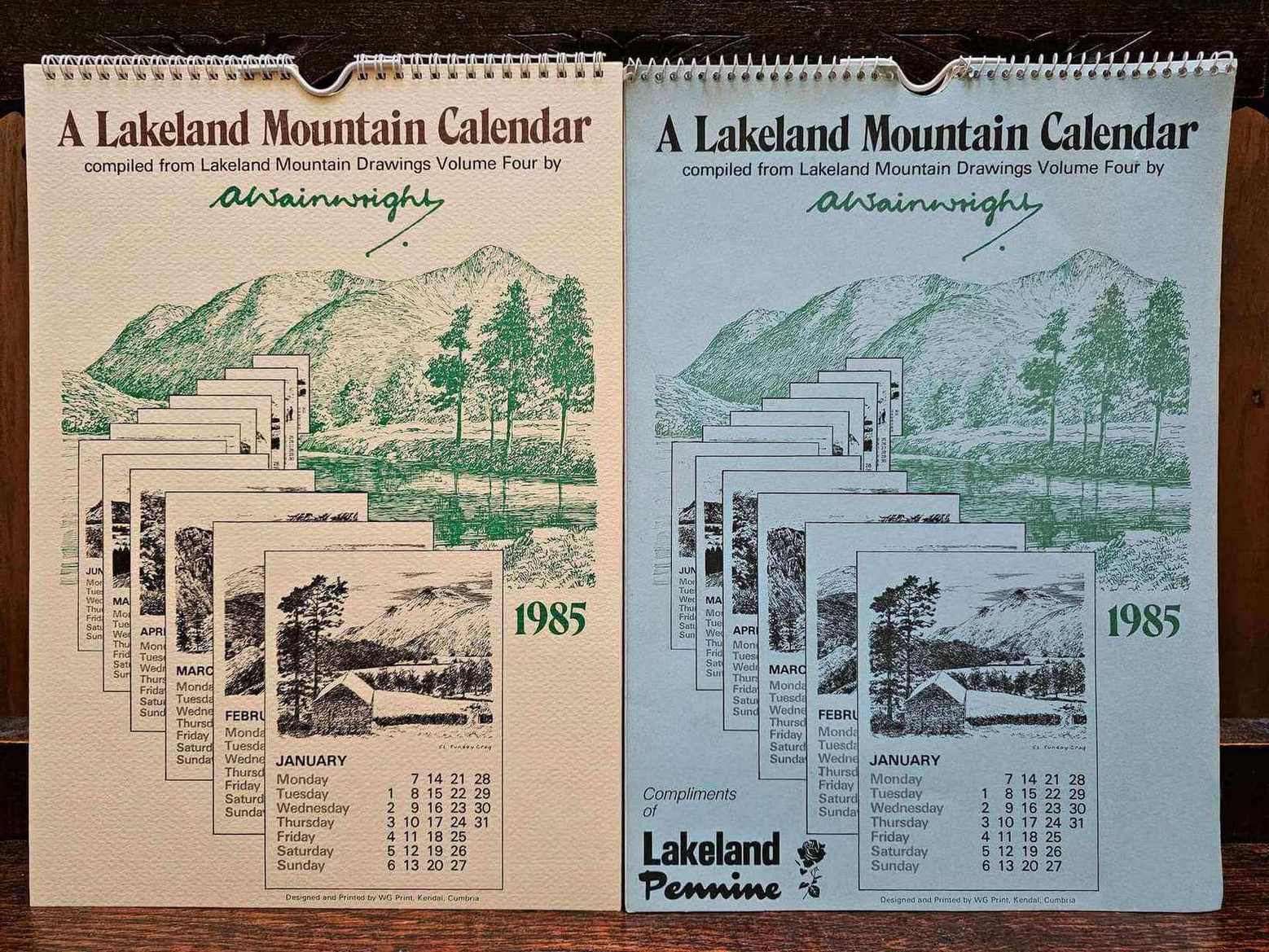
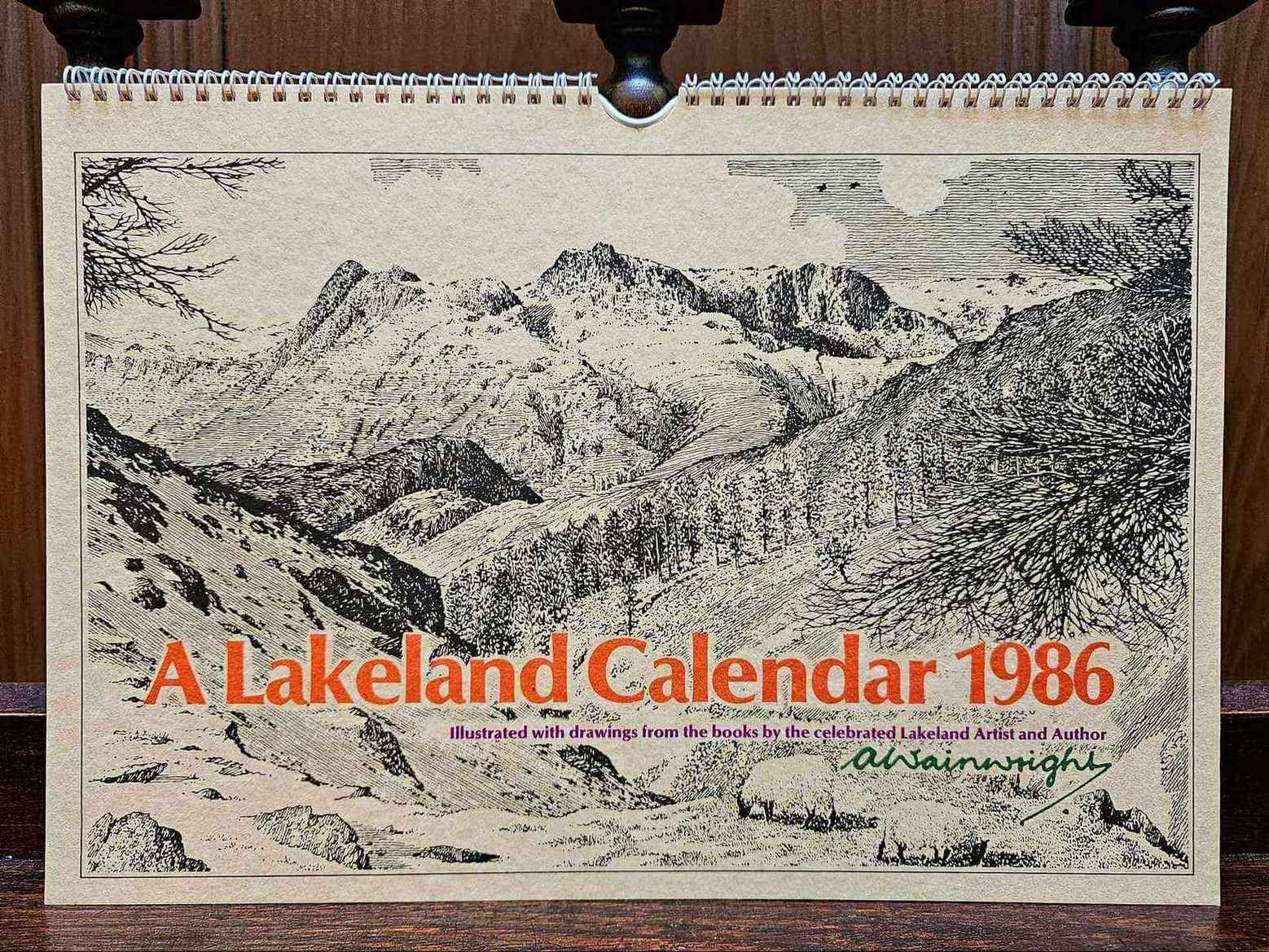
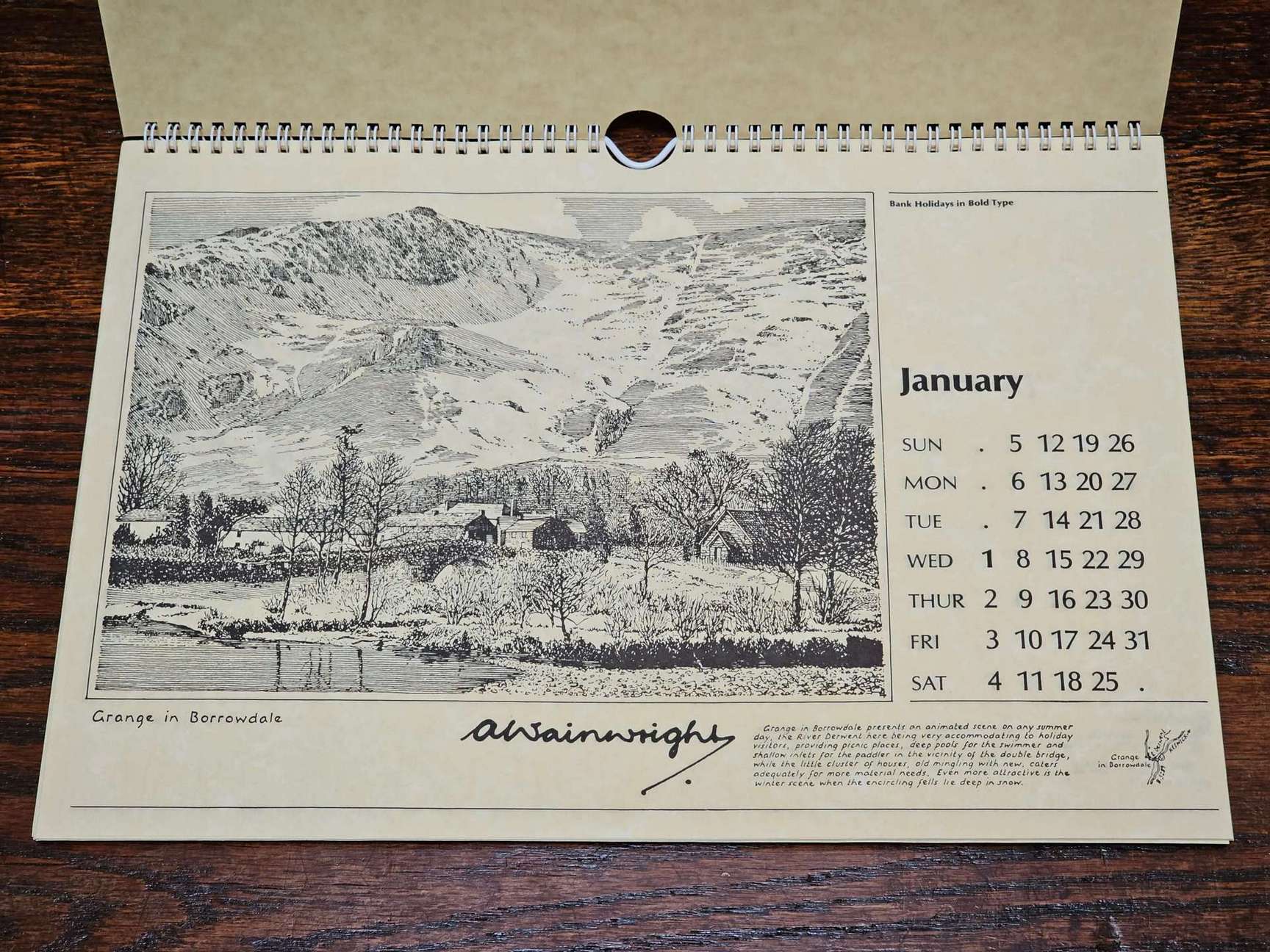
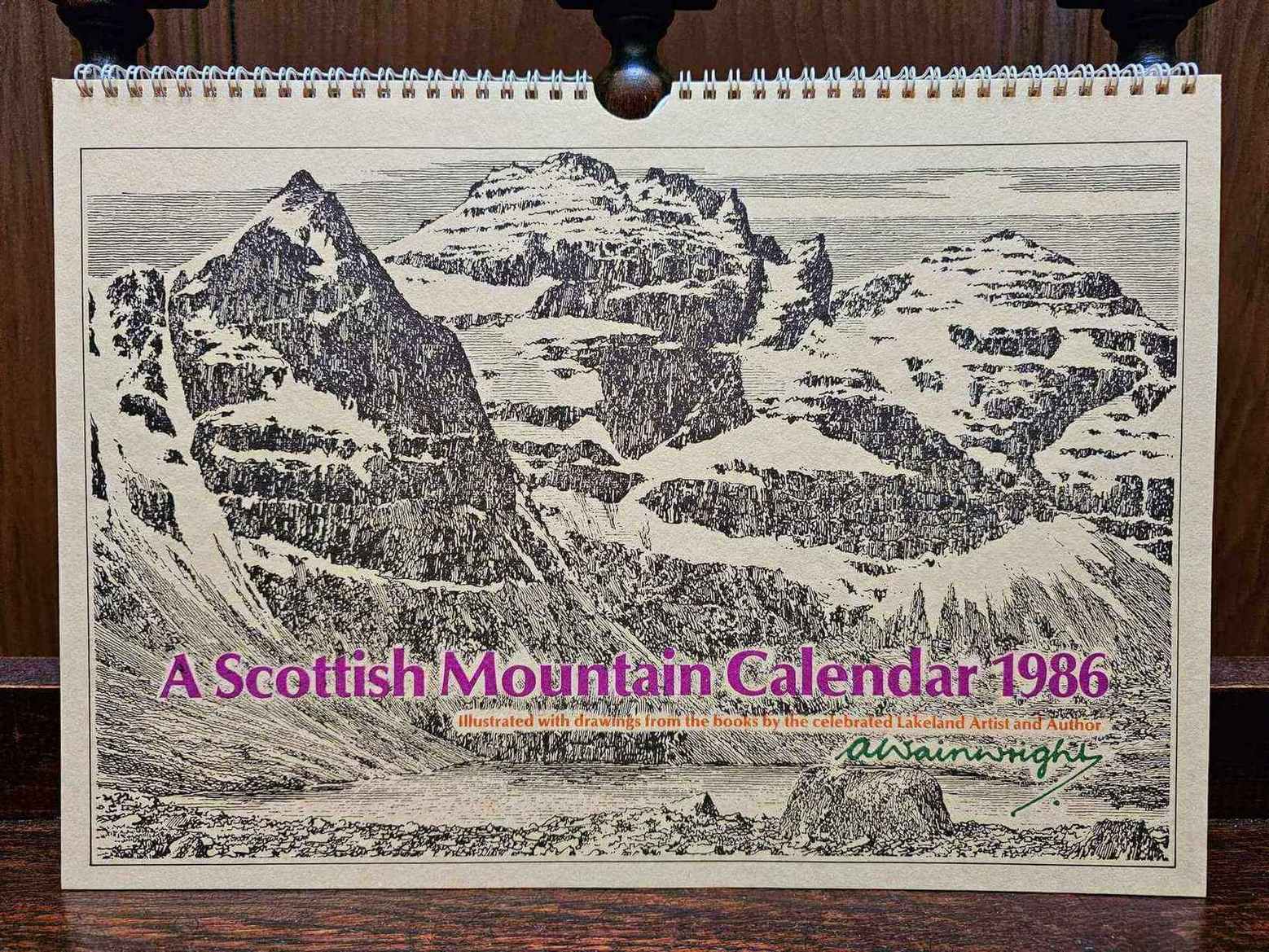
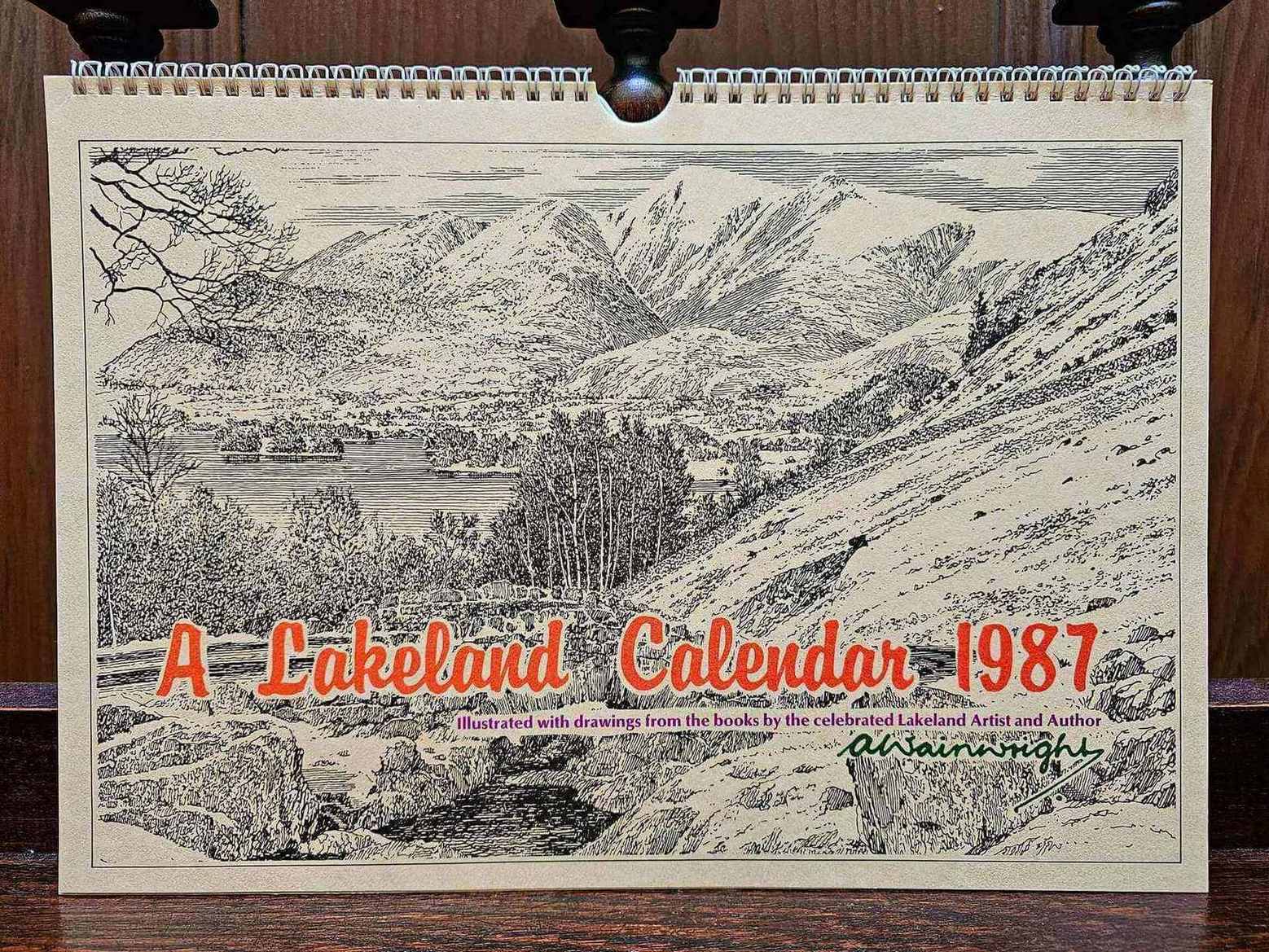
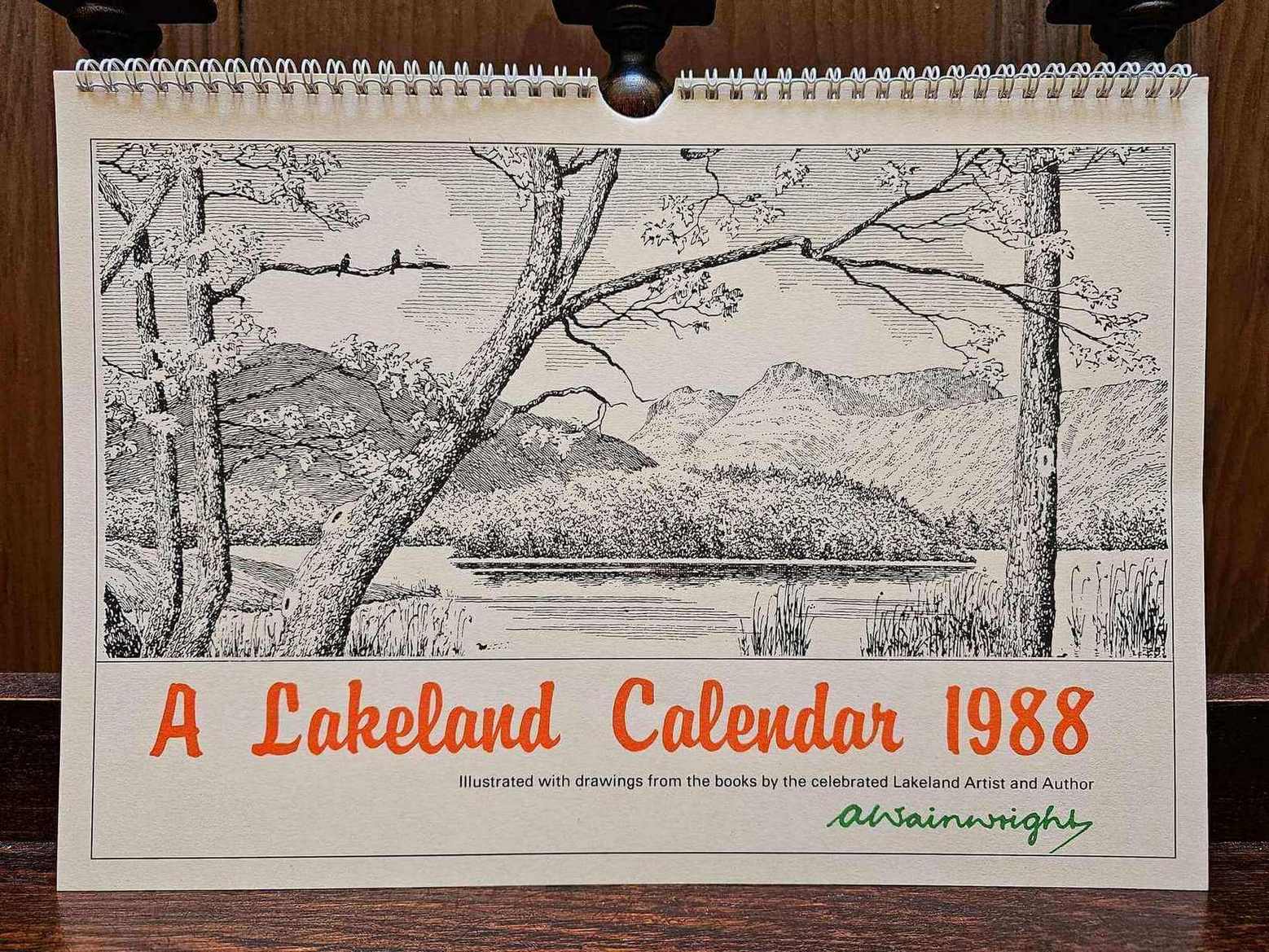
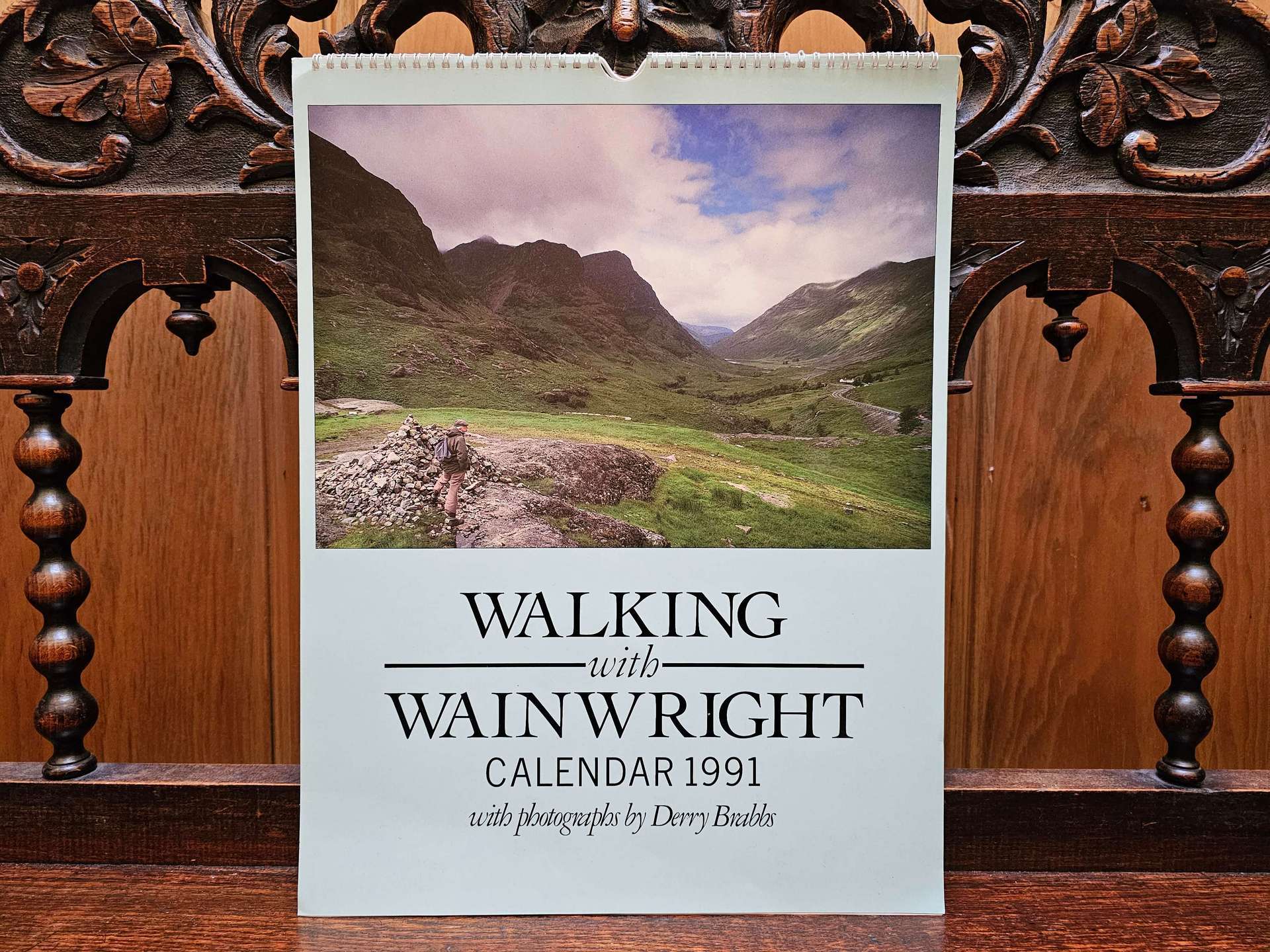
The current list of known calendars produced by the Westmorland Gazette:
1983 – 1984: Lakeland Mountain Calendar
1985: A Lakeland Mountain Calendar
1986: A Lakeland Calendar and A Scottish Mountain Calendar
1987: A Lakeland Calendar
1988: A Lakeland Calendar
1989: A Lakeland Calendar (not acquired)
The Wainwright calendars are scarce treasures among Wainwright-related collectibles. If you happen to discover one of these calendars being offered at a reasonable price, it’s an opportunity not to be missed.
<<>>
The Gazette also produced The A Wainwright Diary from 1987 to 1992, each retailing between £4.90 and £6.50, with the initial diary titled A Lakeland Diary. From 1988 onwards, these diaries were available in three colours: red, green, and black. Upon acquiring the existing Wainwright printing materials from Kendal, I discovered the production elements for the final three diaries, including negatives, printed sheets, gold blocking, proofs (for Wainwright to approve before they went to print) and photographs.
Derek Walker, a renowned freelance book representative, extensively covered northern England for several decades. His expertise in Wainwright’s work was a significant asset to the Gazette, with whom he was closely affiliated. He acquired many of the Gazette’s books and merchandise, including calendars and diaries. He was also the original owner of the rare Wainwright maps in sheet form.

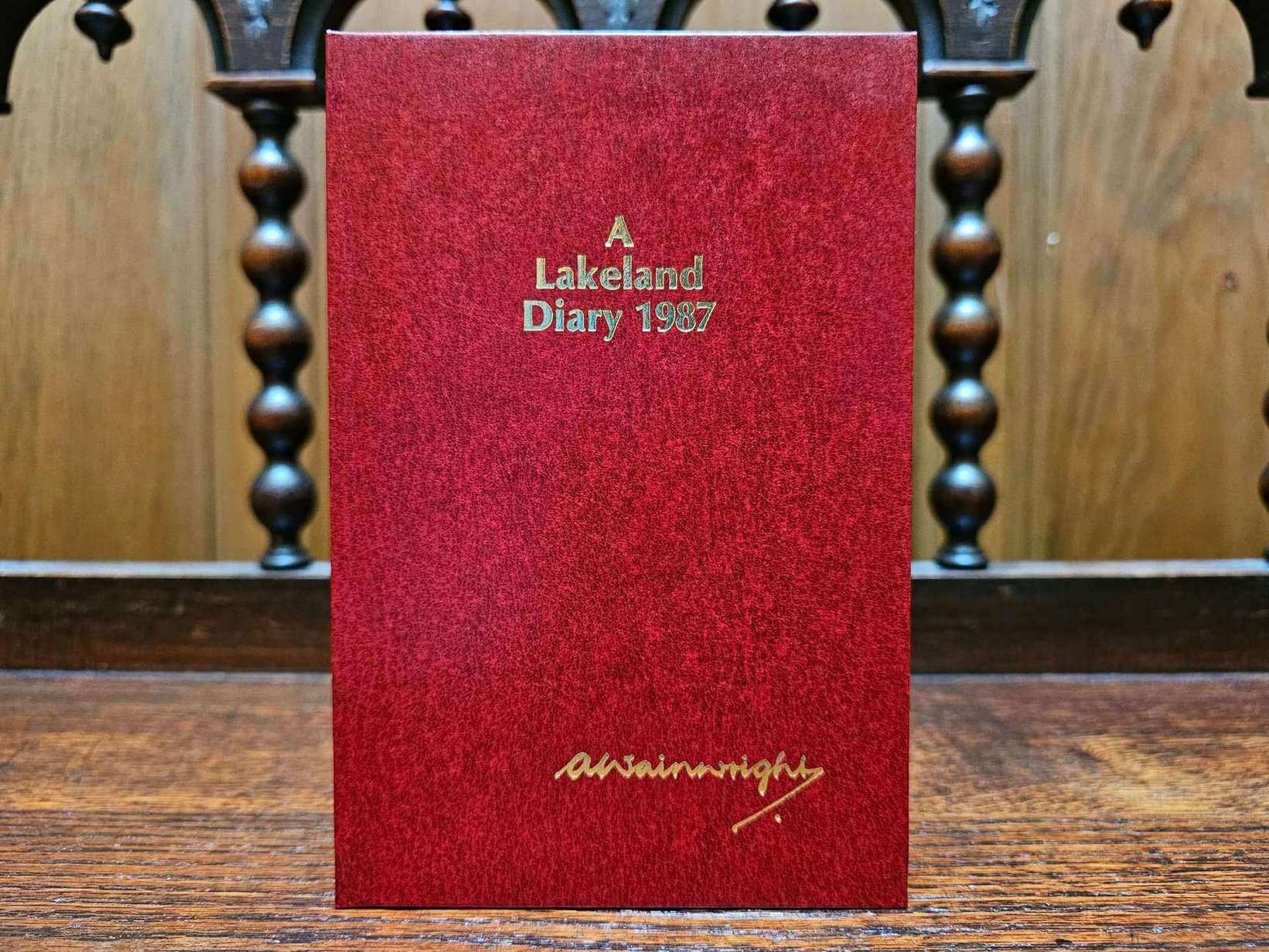
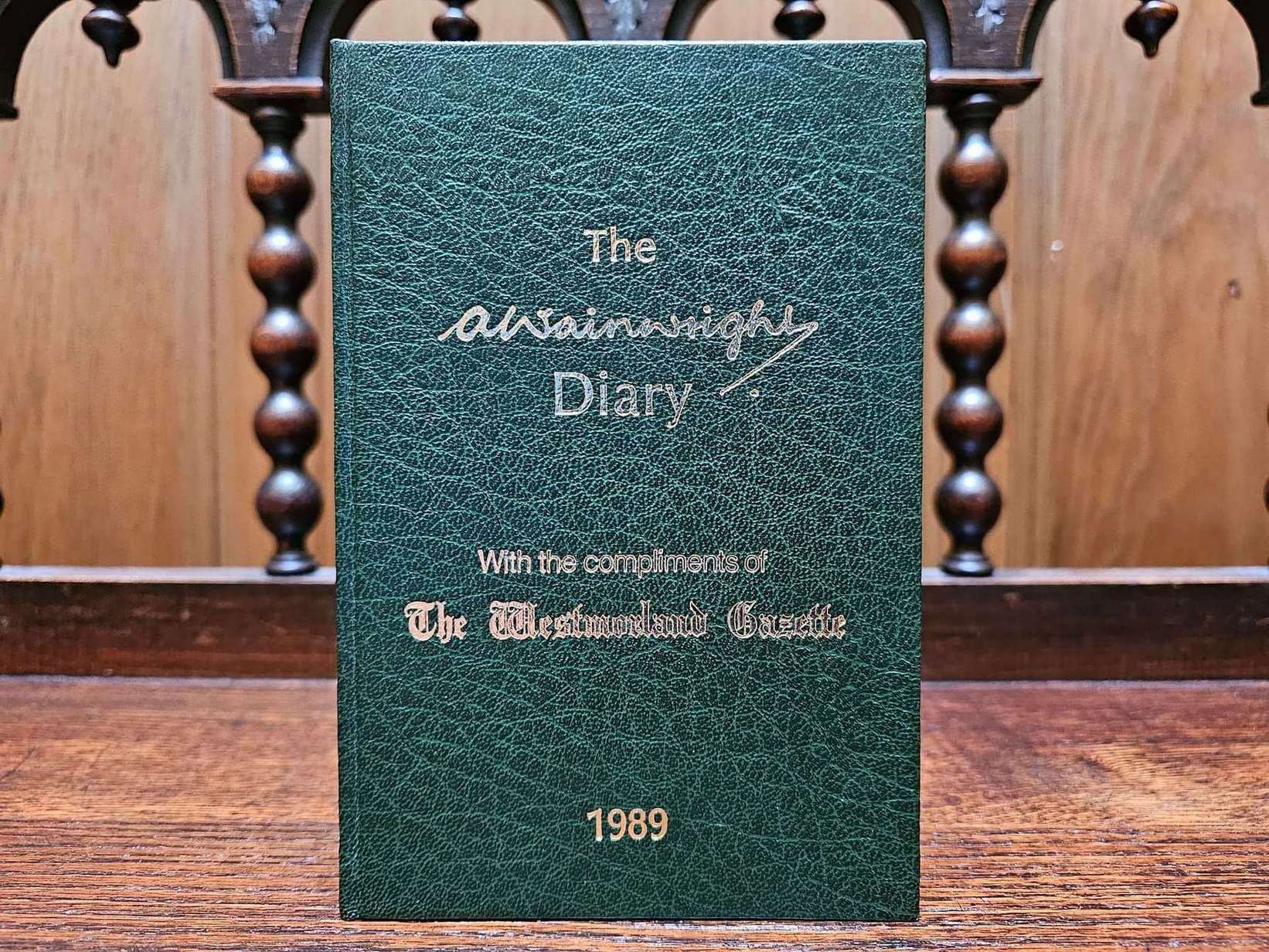

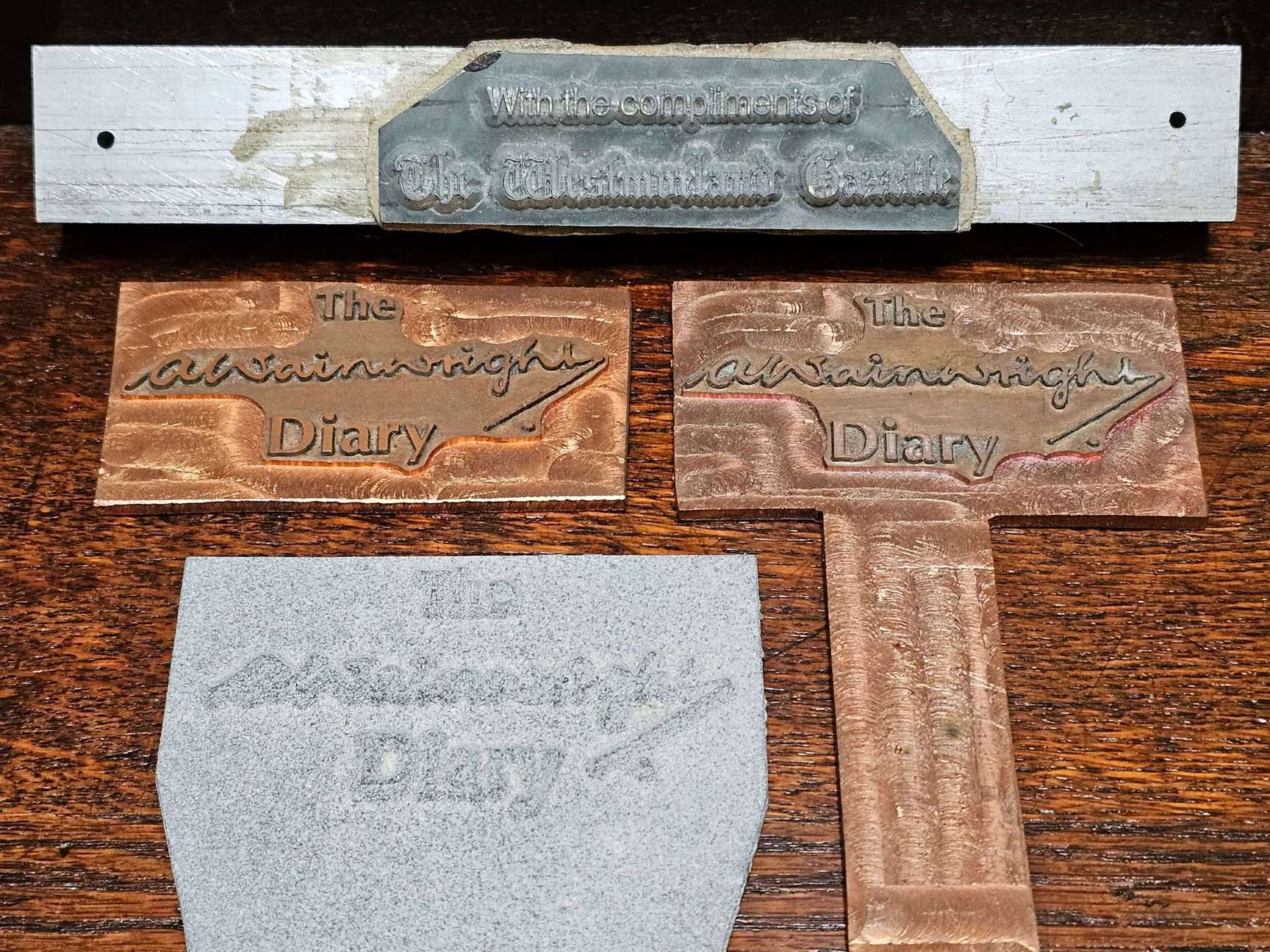


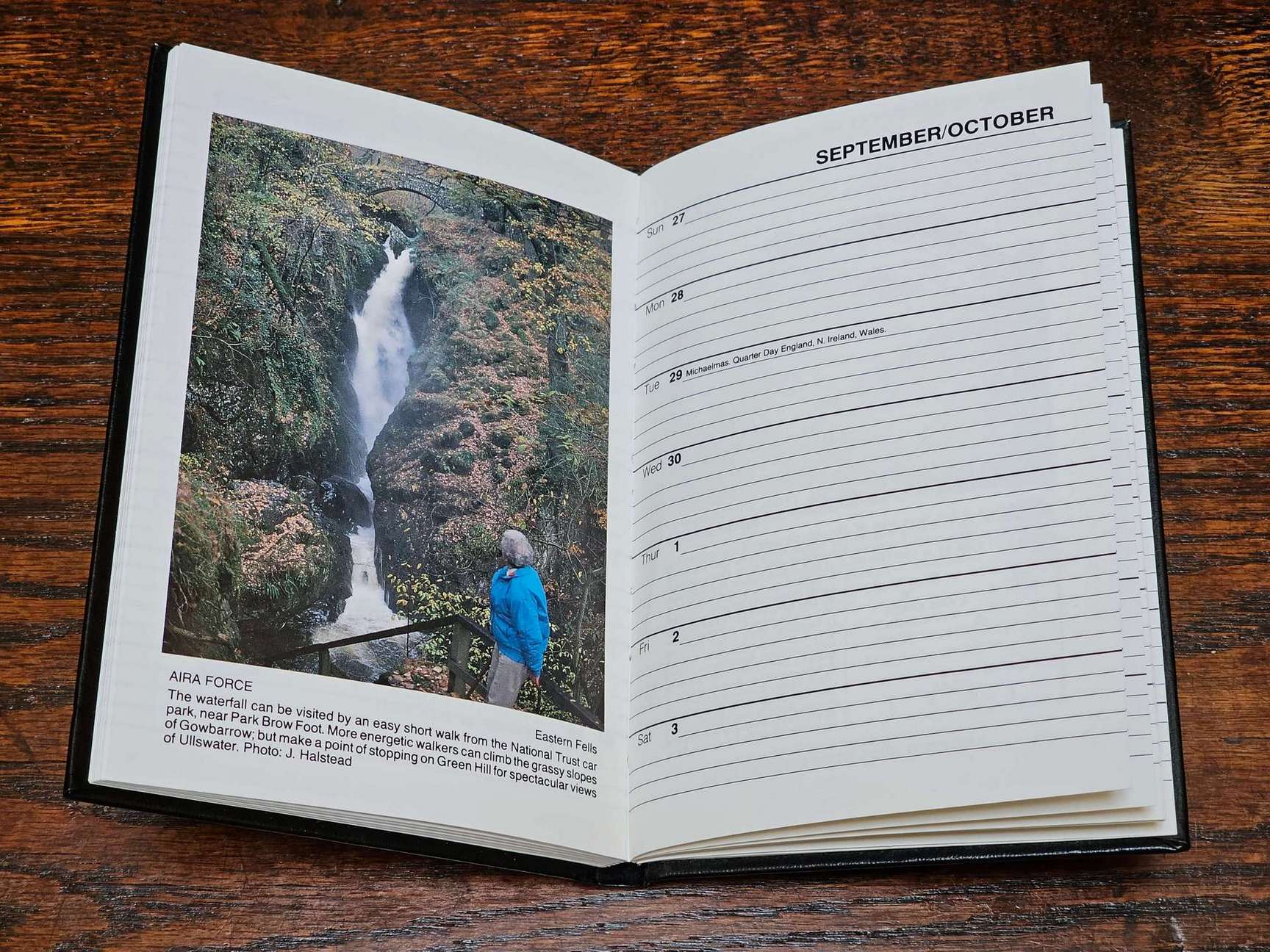
Many of the photographers who contributed to these diaries from 1987 to 1992 were friends/associates of Wainwright and are as follows:
1987 – 1989: Geoffrey Berry
1990: Geoffrey Berry. Ed Geldard, Julian Halstead and Stephen Greenwood
1991: Ed Geldard, John Marx, Julian Halstead and Sheila Richardson
1992: Caron and Julian Halsted and Sheila Richardson
Interestingly, many of these diaries have survived unused, suggesting their importance as collectables even when they were first released. Given their rarity and historical significance, acquiring these diaries is highly recommended for collectors of Wainwright’s printing history.
<<>>
This article will be updated as new information becomes available. Additionally, if members of the Wainwright community uncover any relevant details/items not included here, please get in touch with me. I will update the article accordingly and provide full credit for any contributions.
Back to top of page

